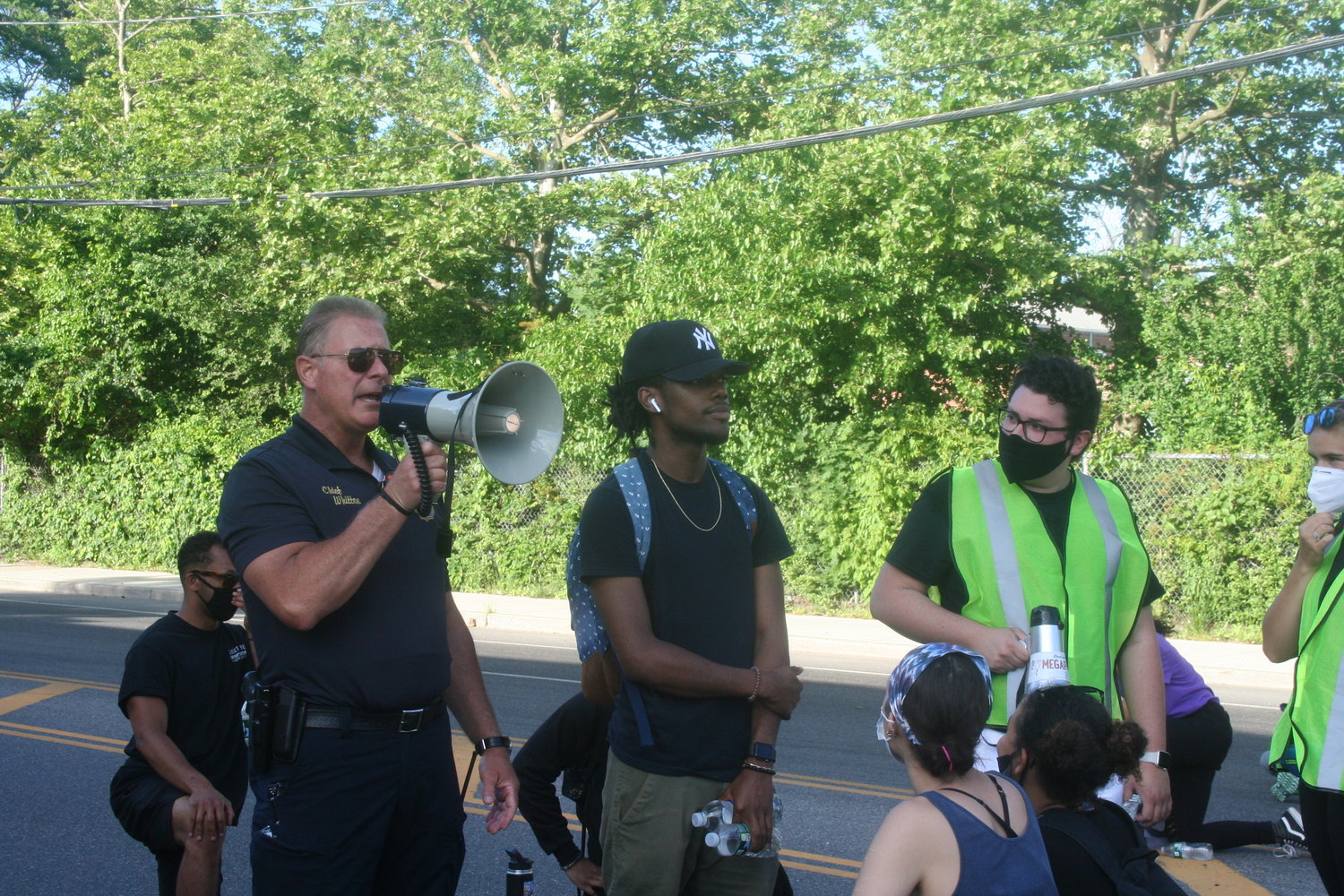Glen Cove Police Department reacts to police reform from state government
Gov. Andrew Cuomo signed the 'Say Their Name' Reform Agenda package on June 12. It followed the killing of George Floyd, 46, at the hand of Minneapolis Police Department police officers and ongoing patterns of police brutality that has been impacting people of color across the country.
The reforms include the repeal of Civil Rights Law 50-A, which privatized the records of police officers, firefighters and correction officers.
"The murder of George Floyd was just the tipping point of the systemic injustice and discrimination that has been going on in our nation for decades, if not centuries," Cuomo said. "These are issues that the country has been talking about for a long time, and these nation-leading reforms will make long overdue changes to our policing and criminal justice systems, while helping to restore community confidence in law enforcement.
The reform also banned chokeholds by law enforcement officers, prohibited false race-based 911calls and the Attorney General has also been officially appointed as the independent prosecutor in cases of police involved deaths. “I am encouraged that New York has been among the first in the U.S. to ban the chokehold practiced by law enforcement,” Rev. Roger Williams, a pastor at First Baptist Church of Glen Cove said. “I hope is that police departments in every city will use this momentum to team up with the citizens they serve and talk about measures and modes used by police that will promote order in the community along with the dignity and safety of all involved,” he said.
Glen Cove Police Department Chief William Whitton said that the reforms shouldn’t impact the department too much. “Those things really don’t do anything to upset the way we do business,” he said. “We do business very professionally and we always have, and the repealing of 50-A, as long as it’s done properly and people’s home addresses, telephone numbers and email addresses are redacted, I really don’t have a problem with that.”
Civil Rights Law 50-A has prevented access to both records of disciplinary proceedings and the recommendations or outcomes of those proceedings, meaning that records of complaints or findings of police misconduct that did not lead to charges against the officer are nearly inaccessible to the public.
“This repeal can go a long way in removing any factors that might slow down a proper look at the incompetence of an officer concerning his or her work,” Williams said. “The repeal would provide the tool of transparency which could lead to steps that can be created or accentuated to address what an officer needs are in order to perform their duties at an acceptable level.”
And under the law revoking 50-A, information like home addresses and phone numbers will be redacted. “Technical infractions,” meaning a violation by a law enforcement officer that is related to administrative department rules that do not involve members of the public and are not considered of the public concern will also be redacted under these new reforms.
Whitton said that the records will be available through a Freedom Of Information Law (FOIL) request. He will be working with the City of Glen Cove Attorney Gregory Kalnitsky on making this information obtainable.
Cuomo has also recently signed an executive order requiring every local government, in collaboration with community members, to redesign its police force by April 2021, or risk losing funding.
The reforms, under the New York State Police Reform and Reinvention Collaborate, requires chief executives of local governments to develop a plan with stakeholders in the community that would consider policing strategies such as: use of force policies, procedural justice, studies addressing systemic racial bias or racial justice in policing, implicit bias awareness training, de-escalation training and practices, restorative justice practices, community based outreach, conflict resolution, crime prevention through environmental design, violence prevention and other policies and techniques.
Whitton pointed out that techniques such as de-escalation training have already been implemented by the GCPD. “We’re already so ahead of the game in many of the things that he put into the executive order that it’s not going to be a big deal for us as a police department to transition,” Whitton said.






